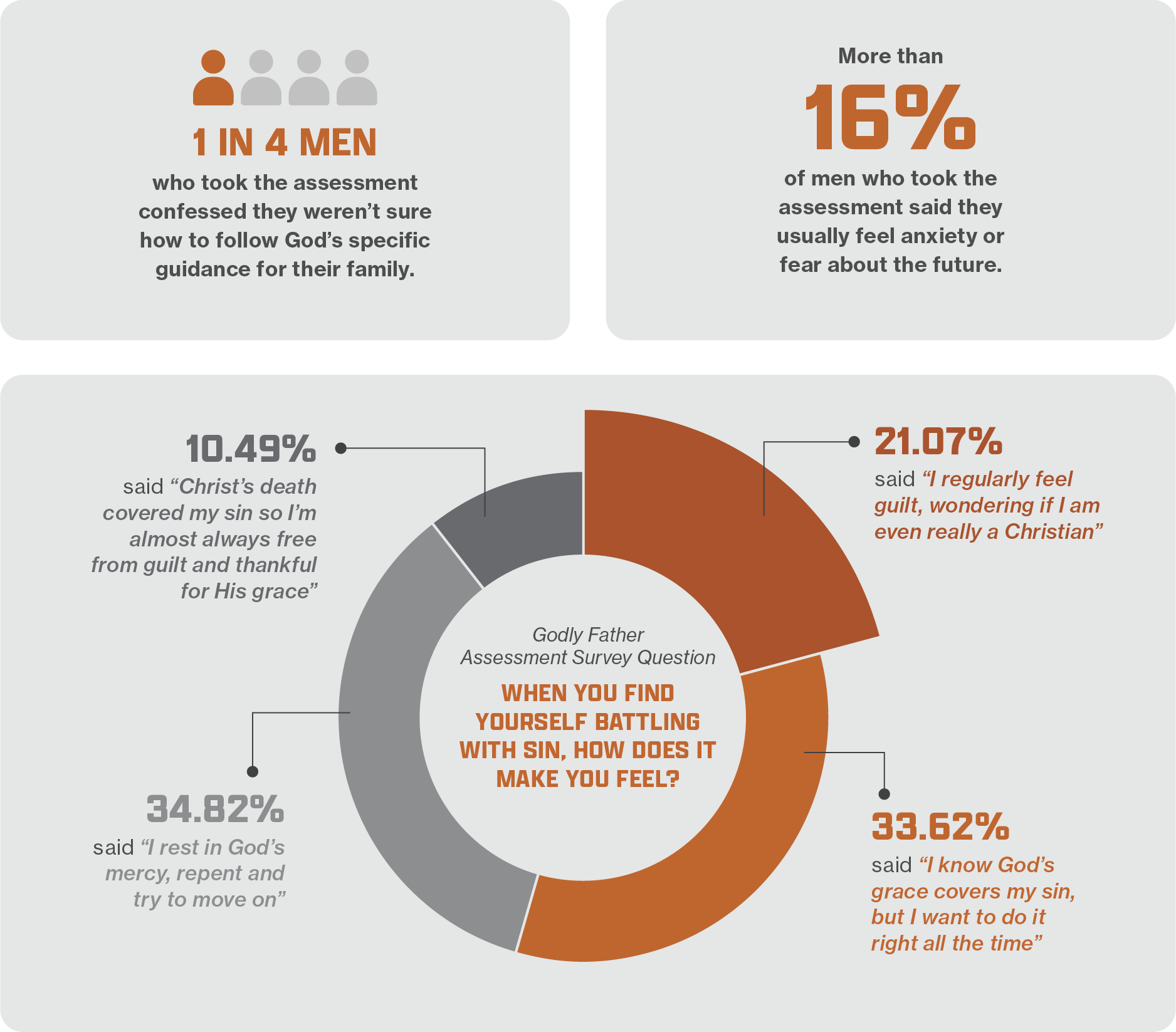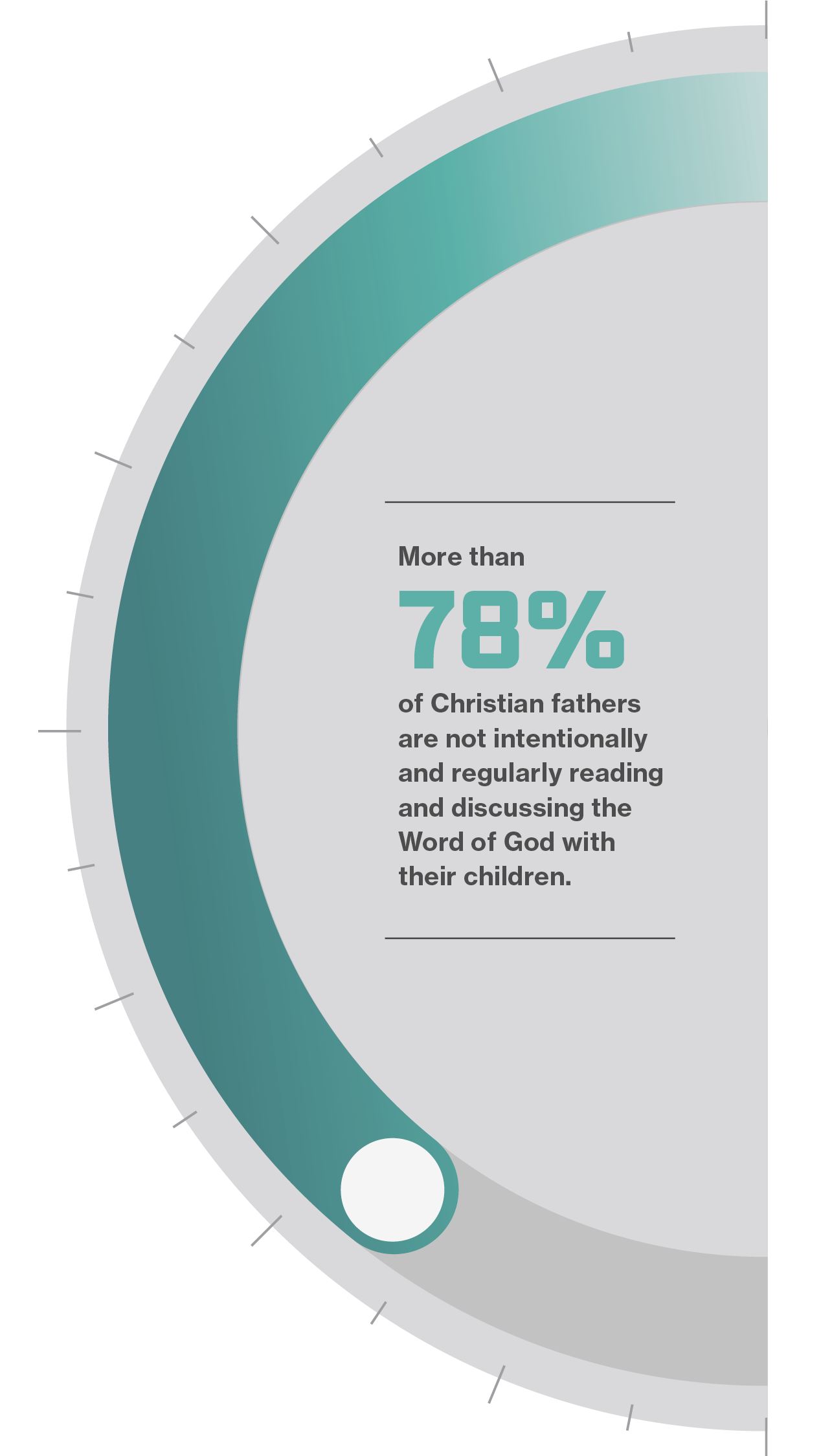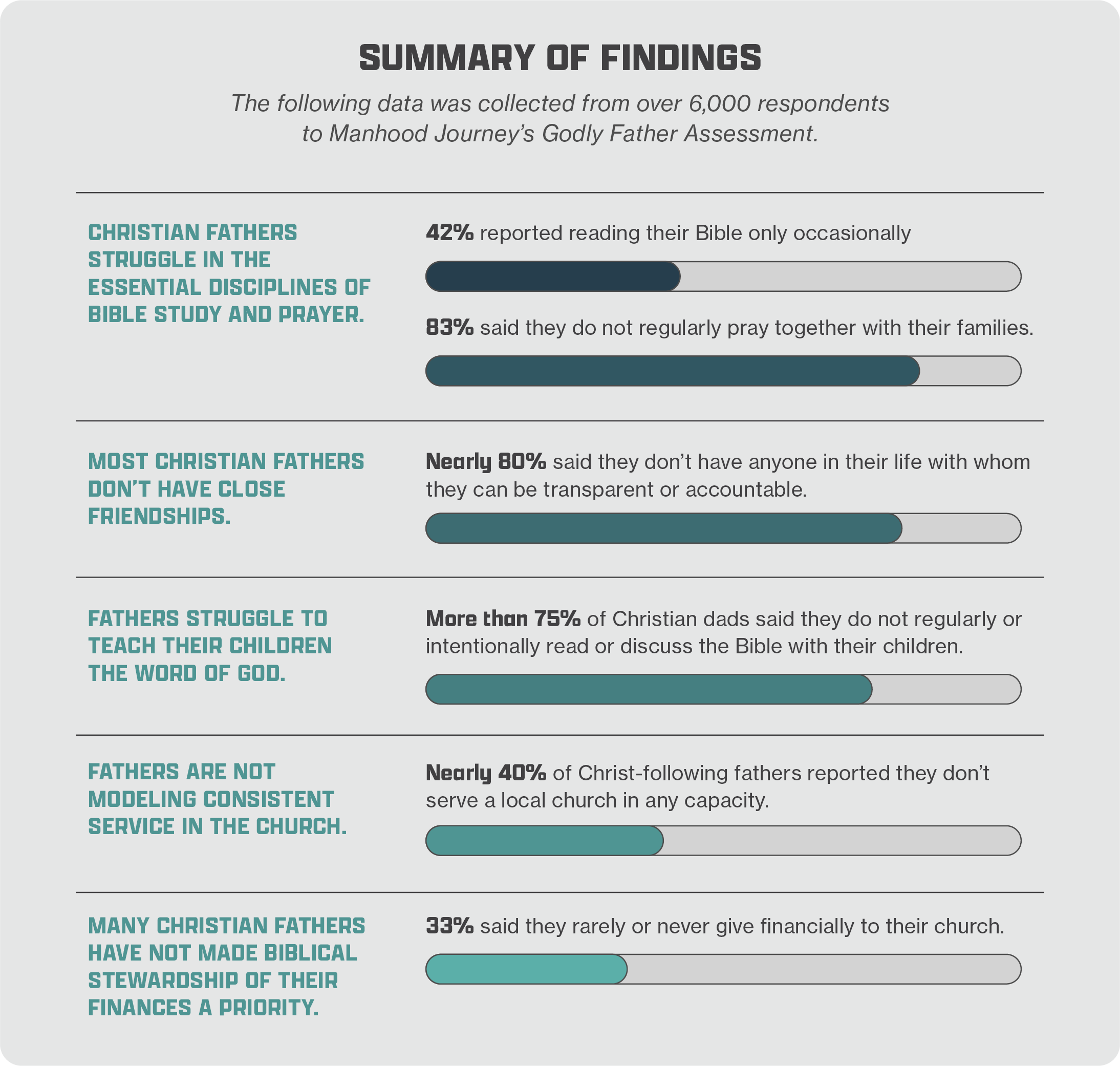Why most Christian fathers struggle to teach their children the Bible, how they can disciple in everyday life, and how the church can help them thrive.
I’ve spoken on fatherhood and family discipleship for years in various churches and at numerous events, and I’ve talked with dozens of fathers who have all told me the same thing: “I know I’m supposed to lead my kids spiritually, but I honestly don’t know where to start. I didn’t grow up with that kind of example.” Their honesty is refreshing—and tragically common.
According to The State of Biblical Fatherhood report, less than 22% of practicing Christian fathers report reading the Bible with their children regularly. Nearly 3/4 of all Christian dads confess they don’t spend intentional time with their kids to help them grow in their faith. Many have the desire, but they lack the tools, the training, and the confidence.

This spiritual uncertainty is not just a family issue—it’s a church issue. If we believe, as Scripture teaches, that parents are the primary disciplers of their children (Deut. 6:6–9), then the church must equip fathers to embrace that role with confidence and clarity.
Let’s explore what’s holding fathers back, what discipleship can look like in the everyday, and how churches can encourage fathers toward faithfulness.
I. Why Most Christian Fathers Struggle to Teach Their Children the Bible
In a culture saturated with self-help messages and performance metrics, many dads feel like they’re failing before they’ve even begun. The State of Biblical Fatherhood reveals a staggering 78% of Christian fathers aren’t regularly or intentionally reading and discussing the Bible with their children.
Why?

First, many men didn’t grow up with a model of biblical fatherhood. They’ve never seen what it looks like to lead devotions at the dinner table or pray over a child’s fear in the middle of the night. Without that foundation, spiritual leadership feels foreign, even intimidating.
Second, biblical illiteracy compounds the problem. A father who doesn’t know the Word himself will naturally struggle to teach it. The report notes that 42% of Christian fathers read the Bible only “occasionally.” It’s hard to give what you haven’t received.

Finally, some men feel disqualified—by their past, their mistakes, or a sense of spiritual inadequacy. Others assume that ministry staff or their wives will take care of discipleship. The result? Children grow up disconnected from their father’s faith—and sometimes from the faith altogether.
II. How Fathers Can Intentionally Disciple Their Kids in Everyday Life
The good news? Discipleship doesn’t require a seminary degree or a perfect track record. It simply requires faithfulness.
Deuteronomy 6 doesn’t envision a classroom but a home. “Talk about [God’s commands] when you sit in your house, when you walk along the road, when you lie down, and when you get up.” In other words, discipleship happens in the margins of everyday life.
Here are three simple ways fathers can begin:
- Create a Rhythm. Start with one meal a week—just one—where the Bible is opened and discussed. Use a simple plan, like a children’s Bible story or a short Psalm. Pray together. Keep it brief, honest, and consistent.
- Seize Teachable Moments. Whether it’s a conflict at school or a thunderstorm at bedtime, everyday events are opportunities to apply the gospel. Point your kids to Jesus in real time. Don’t underestimate the power of a five-minute conversation.
- Practice What You Preach. Kids learn what they live. When fathers model repentance, grace, prayer, and faith, their children take notice. Authenticity is more compelling than perfection.
Even stumbling efforts are powerful.
III. How the Church Can Help Fathers in This Important Task
The church is uniquely positioned to help fathers step into their God-given role. But it won’t happen by accident. It requires a deliberate, discipleship-minded strategy. The State of Biblical Fatherhood outlines a clear path forward: Engage, Equip, and Empower.
1. Engage Fathers with Compassion and Clarity
Many dads in your church are silently struggling. They want to do better, but shame, insecurity, or past failure holds them back. Some don’t even know where to begin.
As church leaders, we must initiate the conversation. We can’t wait for them to come to us. We must engage fathers relationally—through personal invitations, honest preaching, and accessible onramps that meet them where they are.
When we affirm their desire to lead, acknowledge their fears, and cast a compelling vision of spiritual fatherhood, we open the door for transformation. We make it clear: you are not alone, and you were made for this.
2. Equip Fathers with Practical Tools and Biblical Truth
Engagement leads to opportunity—but equipping makes it sustainable.
Fathers don’t need abstract inspiration. They need clear, biblical, resources they can implement today. Provide short devotionals, family prayer guides, conversation prompts for the dinner table, and training sessions on how to study the Bible with their kids. Host workshops where seasoned dads share real stories and failures with grace.
Make equipping dads as normal and necessary as equipping small group leaders or Sunday school teachers.
3. Empower Fathers with Spirit-Led Confidence and Commissioning
Fathers don’t just need information—they need affirmation. They need to know they’ve been called and commissioned by God to lead their homes.
As pastors and leaders, we must remind them: You are the spiritual authority in your home, and the Holy Spirit will guide you. Your imperfections don’t disqualify you—your faithfulness is what matters. The church doesn’t need dads to be theologians or professional ministers. We need them to be Pastor-Dads: Spirit-led shepherds who love God and lead their families with humility, conviction, and grace.
So speak life into them. Intentionally encourage them. Send them back into their homes with the confidence that they have what they need—not because of their own strength, but because Christ is with them. No father will lead perfectly, but every father can lead purposefully.
Final Encouragement
If you’re a pastor, you have a powerful opportunity. You can shape not only the next generation of fathers, but the next generation of families. Every time you equip a man to open the Word, to pray, to lead with humility and love, you are building a legacy that will outlive you.
And if you’re a father reading this, remember: God has entrusted your children to you not by accident, but by divine design. He will give you the grace you need to lead them to Jesus—one faithful step at a time.












